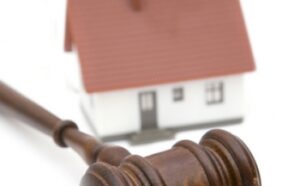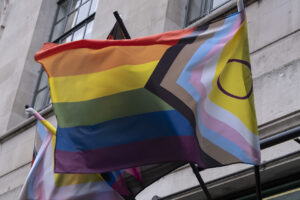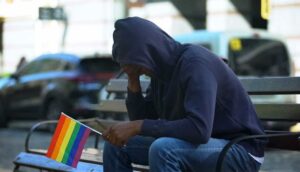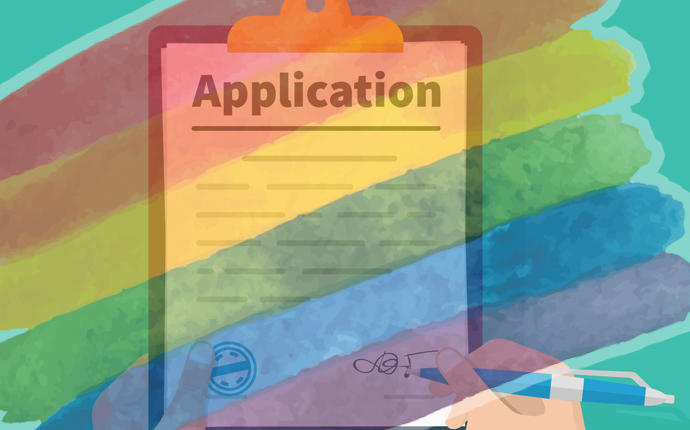LGBT individuals face numerous challenges when it comes to finding safe and inclusive housing. Discrimination based on sexual orientation and gender identity persists, denying individuals the same opportunities afforded to their heterosexual and cisgender counterparts. This article explores the issue of LGBT housing discrimination, its forms, legal protections, challenges faced by LGBT individuals, its impact, and the efforts made to overcome this pervasive problem.
Contents
- 1 Introduction to LGBT Housing Discrimination
- 2 Forms of LGBT Housing Discrimination
- 3 Legal Protections Against LGBT Housing Discrimination
- 4 Challenges Faced by LGBT Individuals in Finding Housing
- 5 Impact of Housing Discrimination on LGBT Individuals
- 6 Advocacy and Support for LGBT Housing Rights
- 7 Overcoming LGBT Housing Discrimination
- 8 Conclusion
Introduction to LGBT Housing Discrimination

LGBT housing discrimination refers to the unjust or prejudiced treatment of lesbian, gay, bisexual, and transgender individuals in the rental or purchase of housing. It involves discriminatory practices, policies, or behaviors that specifically target or negatively impact people based on their sexual orientation, gender identity, or gender expression.
Historically, LGBT individuals have faced various forms of housing discrimination, including denial of housing opportunities, differential treatment, and harassment. Some common forms of discrimination include landlords refusing to rent or sell properties to LGBT individuals, evicting tenants upon discovering their sexual orientation or gender identity, and imposing stricter terms or conditions on LGBT renters or homebuyers.
Forms of LGBT Housing Discrimination
LGBT housing discrimination can manifest in various forms, reflecting the biases and prejudices faced by lesbian, gay, bisexual, and transgender individuals. Here are some common forms of discrimination:
- Refusal of housing: Landlords or property owners may explicitly refuse to rent or sell housing to LGBT individuals based on their sexual orientation, gender identity, or gender expression. This can involve rejecting rental applications, refusing to show available properties, or denying mortgage loans based on discriminatory grounds.
- Differential Treatment: LGBT individuals may be subjected to different or unfair treatment compared to their heterosexual or cisgender counterparts. For example, they may be quoted higher rental prices, charged higher security deposits, or offered less favorable lease terms.
- Evictions and lease terminations: LGBT individuals may face eviction or termination of their lease solely due to their sexual orientation or gender identity. Landlords may use pretextual reasons or find excuses to end the tenancy once the tenant’s LGBT status becomes known.
- Harassment and intimidation: LGBT individuals may be subjected to harassment, verbal abuse, threats, or intimidation by landlords, property managers, or neighbors based on their sexual orientation or gender identity. This hostile environment can create significant distress and may force individuals to leave their homes.
- Advertising and marketing exclusion: Discrimination can occur through advertising and marketing practices that exclude or target specific groups. For example, landlords or real estate agents may intentionally exclude LGBT individuals from property listings, advertisements, or promotional materials.
Legal Protections Against LGBT Housing Discrimination

Legal protections against LGBT housing discrimination vary across different jurisdictions. While some countries have comprehensive protections in place, others have limited or no specific laws addressing this issue. Here are some examples of legal protections against LGBT housing discrimination:
- Fair Housing Laws: In several countries, fair housing laws prohibit discrimination in housing based on various protected characteristics, which may include sexual orientation and gender identity. These laws aim to ensure equal housing opportunities for all individuals. For instance, the Fair Housing Act in the United States prohibits discrimination based on race, color, religion, national origin, sex, familial status, and disability. Some states and localities in the U.S. have extended protections to include sexual orientation and gender identity.
- Anti-Discrimination Legislation: Some countries have enacted comprehensive anti-discrimination laws that explicitly include sexual orientation and gender identity as protected characteristics in all areas of life, including housing. These laws prohibit discrimination based on these factors and provide legal recourse for individuals who experience discrimination. Examples include the Equality Act in the United Kingdom and the Canadian Human Rights Act in Canada.
- State and Local Laws: In some countries, protections against LGBT housing discrimination exist at the state or local level, even if there are no national laws in place. For instance, several states in the U.S. have passed laws prohibiting housing discrimination based on sexual orientation and gender identity, even in the absence of federal protections.
- Constitutional Protections: In certain countries, constitutional provisions or court rulings recognize the rights of LGBT individuals and may provide a basis for challenging housing discrimination. For example, the Supreme Court of the United States has interpreted the U.S. Constitution to protect LGBT individuals from discrimination under the Equal Protection Clause.
Challenges Faced by LGBT Individuals in Finding Housing

LGBT individuals often face unique challenges and barriers when seeking housing due to their sexual orientation, gender identity, or gender expression. Here are some of the challenges they may encounter:
- Discrimination and Bias: LGBT individuals frequently encounter discrimination from landlords, property managers, or real estate agents. They may face explicit or implicit bias during the rental or purchase process, leading to a denial of housing opportunities or differential treatment compared to their heterosexual or cisgender counterparts.
- Limited Legal Protections: In many jurisdictions, there is a lack of comprehensive legal protections against LGBT housing discrimination. Even in places where such protections exist, they may not be effectively enforced or widely known, leaving LGBT individuals vulnerable to discrimination.
- Prejudice and Stereotyping: Stereotypes and misconceptions about LGBT individuals can affect their housing search. Landlords or neighbors may hold prejudiced beliefs and harbor concerns about having LGBT tenants, leading to discriminatory practices or the creation of unwelcoming environments.
- Fear of Disclosure: LGBT individuals often face the dilemma of whether to disclose their sexual orientation or gender identity to landlords or property managers. Fear of discrimination or harassment can lead to individuals concealing their identities, which can be stressful and undermine their ability to fully express themselves in their living environments.
- Transgender and Non-binary Experiences: Transgender and non-binary individuals face specific challenges related to housing. They may encounter difficulties finding suitable accommodations that respect their gender identity, including access to appropriate facilities such as bathrooms or changing rooms. In some cases, they may face overt discrimination or be subjected to invasive inquiries about their gender identity during the application process.
- Homelessness and Housing Instability: LGBT youth, in particular, are at a higher risk of homelessness due to family rejection or discrimination. They may face difficulties finding stable and supportive housing, which can lead to increased vulnerability to other risks such as mental health issues, substance abuse, and exploitation.
Impact of Housing Discrimination on LGBT Individuals
- Emotional and psychological effects: Housing discrimination takes a toll on the mental health and well-being of LGBT individuals. The constant fear of rejection, harassment, or eviction contributes to heightened stress, anxiety, and feelings of isolation.
- Financial consequences and economic disparities: Housing discrimination can have long-lasting financial implications. LGBT individuals have to pay higher rent, live in substandard conditions, or face financial penalties due to discriminatory practices, exacerbating economic disparities.
- Exacerbation of social exclusion and marginalization: Housing discrimination further marginalizes LGBT individuals within society. It reinforces the perception that they are not fully accepted or valued, perpetuating social exclusion and limiting their ability to fully participate in their communities.
Advocacy and Support for LGBT Housing Rights
- Nonprofit organizations working towards equality: Numerous nonprofit organizations are dedicated to advocating for LGBT housing rights. They raise awareness about the issue, offer legal assistance, and provide support services to individuals facing discrimination.
- Education and awareness campaigns: Promoting education and awareness about LGBT housing discrimination is crucial in changing public attitudes and challenging discriminatory practices. These campaigns aim to foster empathy, understanding, and acceptance within society.
- Resources and assistance for affected individuals: Various resources and assistance programs are available to help LGBT individuals navigate housing discrimination. These include legal aid services, counseling, and referrals to LGBT-friendly housing providers.
Overcoming LGBT Housing Discrimination
Overcoming LGBT housing discrimination requires collective efforts from various stakeholders, including individuals, communities, organizations, policymakers, and advocacy groups. Here are some strategies and actions that can help address and mitigate LGBT housing discrimination:
- Legal Protections: Advocate for the enactment and enforcement of comprehensive legal protections against LGBT housing discrimination at the local, regional, and national levels. This includes lobbying for inclusive fair housing laws that explicitly prohibit discrimination based on sexual orientation, gender identity, and gender expression.
- Awareness and Education: Raise awareness about the existence and impact of LGBT housing discrimination through educational campaigns, workshops, and community outreach. Promote understanding and empathy by sharing personal stories and experiences of those affected by discrimination.
- Data Collection and Research: Encourage research and data collection on LGBT housing discrimination to better understand its extent, impacts, and patterns. Utilize this information to advocate for evidence-based policies and interventions.
- Inclusive Housing Policies: Promote the development and implementation of inclusive housing policies at local and national levels. Encourage governments, housing authorities, and private sector stakeholders to adopt policies that explicitly protect LGBT individuals from discrimination and create inclusive housing environments.
- Training and Sensitization: Provide training and education to landlords, property managers, real estate agents, and housing professionals about LGBT issues, cultural competence, and fair housing practices. This can help reduce biases, enhance understanding, and promote inclusive behavior in the housing industry.
Conclusion
LGBT housing discrimination remains a significant issue that undermines the rights and well-being of individuals within the LGBTQ+ community. To address this problem, it is crucial to strengthen legal protections, raise awareness, and promote inclusive housing practices. By working together, we can create a society where every individual, regardless of their sexual orientation or gender identity, has equal access to safe and affirming housing.
Life may sometimes be challenging for people from the LGBTQ community, but Online LGBTQ Counseling can help. Get experienced LGBTQ therapists at PrideMantra: Book a trial LGBTQ therapy session.


